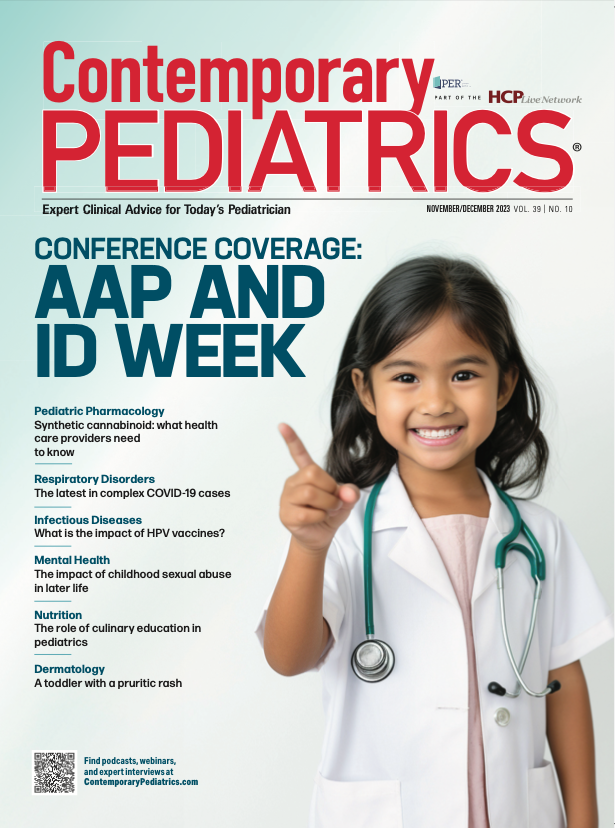Takeaways
- Delta-8 THC (D8) poses significant risks to minors due to its widespread availability and appeal.
- Weak age verification measures online allow young consumers easy access to D8 products.
- D8 products are attractively priced and contain high dosages, making them appealing to teenagers.
- Kid-friendly packaging further increases the risk of D8 consumption by minors.
- Health care professionals and policymakers must collaborate to educate and protect young individuals and implement stricter regulations for D8 distribution.
Delta-8 THC (D8) has gained significant attention in recent times as a synthetic cannabinoid that closely resembles traditional THC in terms of its effects, according to the authors of a study recently highlighted at the 2023 American Academy of Pediatrics National Conference & Exhibition.
Unlike traditional THC, which is federally banned, D8 has managed to find a legal loophole, making it widely accessible, wrote the authors. While proponents of D8 argue for its safety, recent research reveals a concerning trend in its availability and marketing to minors.
In 2021, a staggering 77% of accidental D8 exposures involved minors. This statistic underscores the need to delve deeper into the online market for D8 products to understand the ease of purchase and the extent to which these products are marketed to young consumers, according to the authors.
To shed light on this issue, a study examined 45 websites selling D8. The research focused on several key aspects:
Age verification: Shockingly, 36% of the websites did not ask customers for their age, allowing unrestricted access to potentially harmful D8 products.
Third-party age verification: A staggering 96% of the websites lacked formal third-party age verification procedures, further facilitating access to minors.
Product types: Nearly all the websites, 98%, offered D8 edibles, which are particularly appealing to young consumers. 82% sold D8 smoking/vaping products, and 42% offered D8 tinctures.
Pricing and dosage: A concerning finding was the low cost of these products. A significant portion (33%) of the cheapest products were priced at $5 or less, making them highly affordable for teenagers. Furthermore, 47% of these products contained a dosage of 51 mg or more, which is substantially high.
Kid-friendly packaging: Over half of the websites (53%) sold D8 products in packaging that could be considered attractive to children. This is an obvious concern since it increases the appeal of these products to minors.
Warning statements: Twenty-four percent of the websites did not include any warning statements or disclosures about the potential risks associated with D8 consumption.
These findings are deeply troubling. The lack of age verification, combined with the low cost and high dosage of D8 products, as well as the use of enticing packaging, creates a perfect storm for attracting young consumers. Teenagers may be drawn to these products without fully comprehending their potency and potential dangers.
Clinicians play a crucial role in addressing this issue. It is imperative for healthcare professionals to engage in open and informative discussions with their teenage patients regarding the potential risks and adverse effects of D8 consumption. This education is vital in ensuring that young individuals are well-informed and make responsible choices when it comes to their health and well-being.
Policymakers also bear a significant responsibility in this matter. The lack of stringent regulations surrounding D8, especially online, is concerning, wrote the authors. It is essential for authorities to implement more robust measures that require online D8 distributors to establish effective age verification procedures. Additionally, regulations should prohibit the sale of D8 products in packaging that appeals to children.
The authors concluded the research findings on D8 accessibility and marketing to minors are a cause for serious concern. The prevalence of D8 products, their affordability, and the lack of safeguards against underage access raise red flags. Health care professionals, parents, and policymakers must work together to educate and protect our youth from the potential risks associated with D8 consumption and to ensure that appropriate regulations are in place to safeguard their well-being.
Reference:
Milanaik R, Grewal A.P3A007: delta-8 Disaster: Exploring the Market for the Synthetic Cannabinoid delta-8 and Its Availability to Minors Online. Poster. Presented at: Presented at: 2023 American Academy of Pediatrics National Conference & Exhibition.

